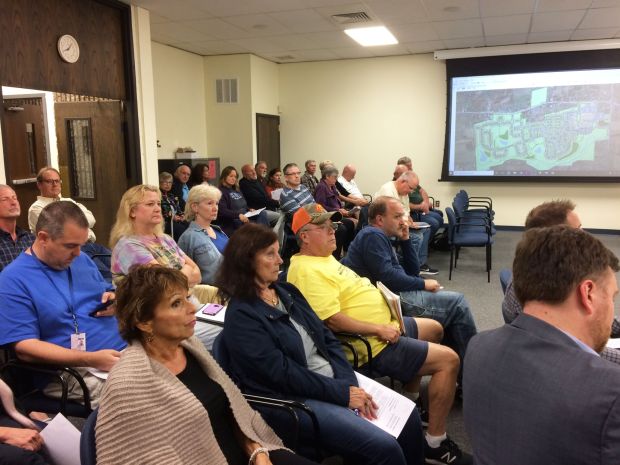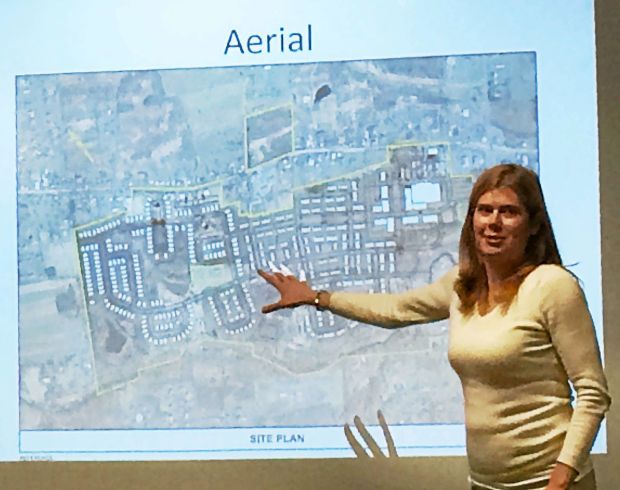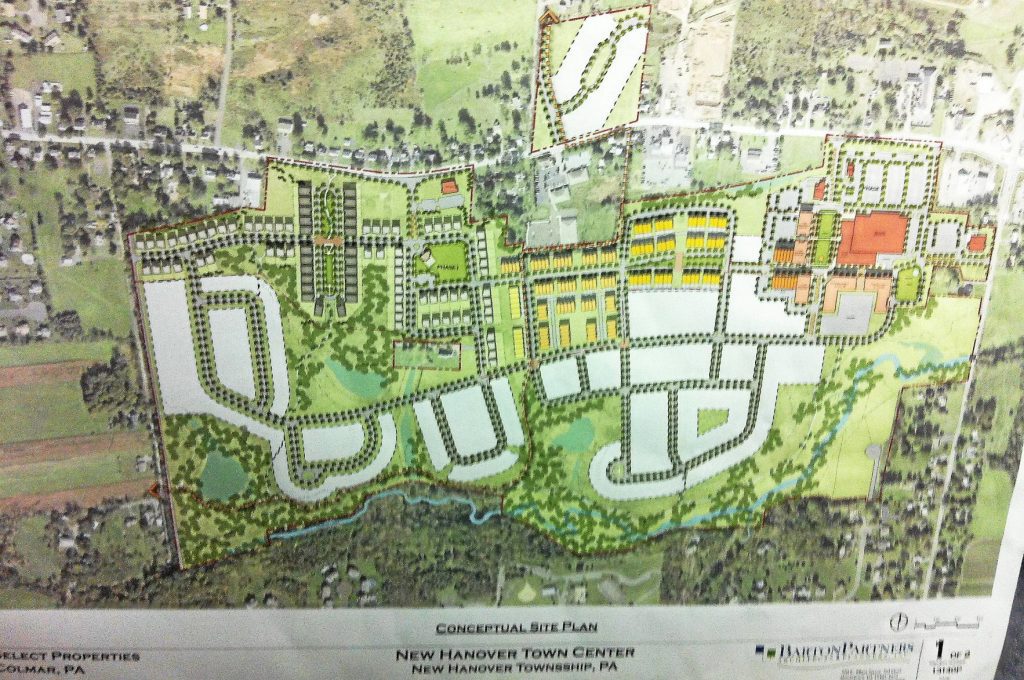The developers of the Town Center project have filed a federal lawsuit against New Hanover Township, alleging that township officials intentionally delayed the project in a racially motivated effort to prevent minorities from changing the township's character, seeking over $150 million in damages.
The Town Center project, proposed in 2005, includes plans for over 700 homes and commercial space on 209 acres along Swamp Pike.
Lawyers for R.P. Wynestone and seven other Colmar-based investors, citing racial bias, point to the controversy surrounding the police department in the evidence for their claims about delaying and obstructing the project. This controversy led to a settlement with the attorney general’s office following a year-long investigation into alleged racial bias against former police chief Kevin McKeon and former police sergeant William Moyer. resulted in a settlement with the attorney general’s office after a year-long investigation into racial bias alleged against former police chief Kevin McKeon and former police sergeant William Moyer.
William Moyer, who retired from the police department but now serves as the local fire chief, recently began a four-year term on the township planning commission.
The developers' lawyers at Kang Haggerty wrote in the lawsuit that the defendants disrupted development and violated property rights by reviewing development applications in bad faith and passing restrictive ordinances designed to make development commercially unfeasible.
The lawsuit alleges that the township's extreme actions are driven by income discrimination and racial bias in an effort to prevent the construction of new affordable housing, increase housing density, attract new residents to the township, and stop any increase in the population of racial minorities, in a township that is currently 95% white.
(Current U.S. Census figures indicate that New Hanover's white population is 91.9%. as being 91.9%.)

The lawsuit refers to alleged scandals, including statements from former officers about racist comments and harassment from senior officers, as well as specific incidents such as an eggroll being placed among a former officer's belongings on his last day on the job.
The township responded to the allegations by hiring an attorney to investigate after they were publicized in Philly Voice magazine and The Mercury, with involvement from the Pottstown NAACP.
In June of 2020, an investigation led by attorney John Gonzales, hired by the township, found no evidence to support the claims. Philly Voice magazine and The Mercury and the Pottstown NAACP became involved.
The township's response to the investigation and its agreement with the attorney general’s office led to the expiration of McKeon’s 10-year contract and the retirement of Moyer.
In the wake of the report and the agreement with the attorney general’s office, McKeon’s unusual 10-year contract with the township expired and was not renewed and Moyer retired. Youse was chosen to serve on the board of supervisors in 2021 but he is the only township supervisor not named individually as a defendant.
“The township never made public the results of its internal investigation into the racist comments and Sgt. Moyer retired from the police department without adverse action,” the lawsuit points out. “Instead of improving its behavior, the township rewarded one of the individuals involved, Sgt. Moyer, by appointing him to the township’s planning commission.”
The lawyers also stated, “by appointing Sgt. Moyer to the planning commission, the township essentially endorsed his racist comments.”
Contacted Wednesday, Township Manager Jamie Gwynn said it is the township’s policy not to comment on legal matters.
Town Center, suggested on 209 acres where the old New Hanover Airport was located, is bordered by Swamp Pike in the north, Route 663 in the east and Township Line Road to the west. It was initially suggested in 2005, under zoning created specifically for the project and received a preliminary approval in 2007.
By law, because it received preliminary approval in 2007, the Town Center project is not subject to new land development laws the township has adopted in the meantime, but is instead governed by the laws in place at the time of its preliminary approval.

A near-capacity crowd listen to plans about the New Hanover Town Center project at a past township supervisors’ meeting. (MediaNews Group File Photo)
The original developer went bankrupt and R.P. Wynestone acquired the project, approvals intact, in 2011. The plans have since been revised at least eight times with one revision arriving as recently as this month.
Over the years, the township has rejected various versions of the plan and adopted new laws that developers say are meant specifically to block and impede the project’s progress, specifically new stormwater standards.
“This is a case about a township taking extreme measures and displaying egregious conduct to prevent development in the community by any means necessary, including bad-faith consideration of development,” the lawsuit says.
It notes that the comprehensive plan for the Pottstown Metropolitan Regional Planning Committee, of which New Hanover is a part, indicates the township will provide a minimum of 750 acres for fair share of various dwelling types encompassing all basic forms of housing. “Much of the area in the township designated for primary growth is comprised of the landowners’ properties,” the lawsuit notes.

“As a significant development that would increase affordable housing inventory and accordingly promote racial diversity, Defendants undertook a concerted plan to stop the RP Wynstone Development, by imposing burdensome requirements, rescinding prior approvals, taking steps to make it economically unfeasible, and otherwise halt its progress,” the lawyers wrote.
The lawyers of R.P. Wynestone stated that the defendants' actions make it extremely difficult for the plaintiffs to develop the properties, as they keep changing laws and requirements continuously. They mentioned that any attempts to follow the requirements are ineffective because the defendants keep altering the rules, resulting in a significant financial burden and stopping progress.
The developers have faced $150 million in unnecessary costs due to the constant delays and changes to the plan, according to the lawyers. The lawsuit not only demands $150 million in compensation but also seeks unspecified "punitive damages" to be imposed on the township for its behavior in this case.









